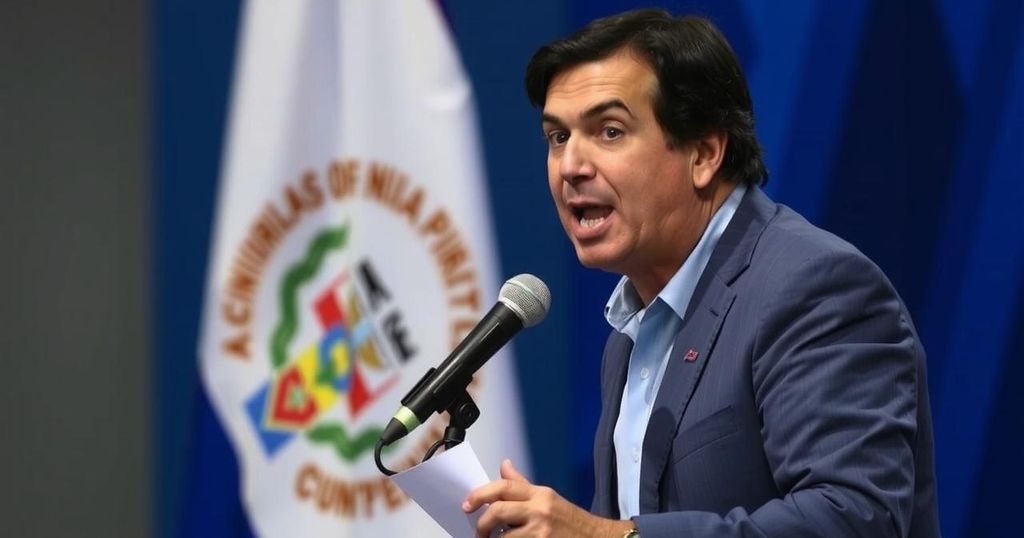Uruguay’s Presidential Runoff: Left-Wing Challenger Yamandú Orsi Claims Victory

In Uruguay’s presidential runoff, left-wing candidate Yamandú Orsi triumphed over conservative Álvaro Delgado, receiving 49.56% of the vote against Delgado’s 46.17%. Orsi, a former history teacher and two-time mayor, expressed his intent to unite the country, emphasizing moderate policies similar to earlier administrations known for progressive reforms. The outcome indicates a shift in voter sentiment amid economic concerns and discontent with the ruling party.
In a closely contested presidential runoff in Uruguay, conservative candidate Álvaro Delgado conceded defeat to left-wing challenger Yamandú Orsi on Sunday. During his concession speech in Montevideo, Delgado expressed his sentiments by stating, “with sadness, but without guilt, we can congratulate the winner.” Orsi, the former history teacher and mayor, celebrated victory amidst an excited crowd, promising to unite the country and acknowledging the diverse sentiments present among the population. With just over 91% of the votes counted, preliminary results indicated Orsi received 49.56% while Delgado secured 46.17% in a turnout exceeding 90%.
This election reflects a growing trend of anti-incumbent sentiment as voters express dissatisfaction with longstanding ruling parties, mirroring global patterns witnessed throughout 2024. Unlike more extreme shifts seen in other regions, Orsi has described himself as a moderate, intending to maintain a balance of market-oriented policies while addressing critical social issues such as childhood poverty and organized crime. His platform retains many elements of the previous Broad Front administration, recognized for progressive social reforms between 2005 and 2020.
The outgoing president, Luis Lacalle Pou, commended Orsi’s victory and expressed his readiness to facilitate a smooth transition. The election outcome signals a possible change in direction after years of economic stagnation and rising crime, issues that have surfaced prominently in citizen concerns. Orsi’s campaign offered tax incentives for investment and called for reforms in the social security system, attempting to balance the expectations of various constituents. Despite these promises, there remains uncertainty about radical changes, particularly as unions advocate for substantial reforms lacking popular support.
Orsi’s victory reflects discontent with the current regime and indicates a desire for renewed dialogue and national unity. He vowed to work towards a more integrated society, commencing immediate efforts upon taking office. Overall, this election in Uruguay serves as yet another reminder of the shifting political landscapes in response to economic challenges and public dissatisfaction.
The recent presidential election in Uruguay took place against a backdrop of heightened electoral activity across multiple nations, notably in 2024, where many voters have exhibited strong discontent towards existing leaders. Uruguay’s political history is marked by alternating rule between the conservative National Party and the leftist Broad Front. The country has been subject to economic struggles post-pandemic, which have influenced voter sentiment and expectations for government performance. The Broad Front previously facilitated significant social reforms, establishing a legacy of progressive policies that have resonated both domestically and internationally.
Yamandú Orsi’s election as president of Uruguay marks a pivotal transition from conservative rule to a left-leaning approach, emphasizing unity and dialogue. The election results reflect broader trends of dissatisfaction with incumbent parties, signaling an appetite for change amid lingering economic challenges. Orsi’s moderate platform suggests a continuation of successful policies while addressing pressing social issues, indicating a complex yet hopeful path forward for Uruguay’s governance.
Original Source: www.coastreporter.net







